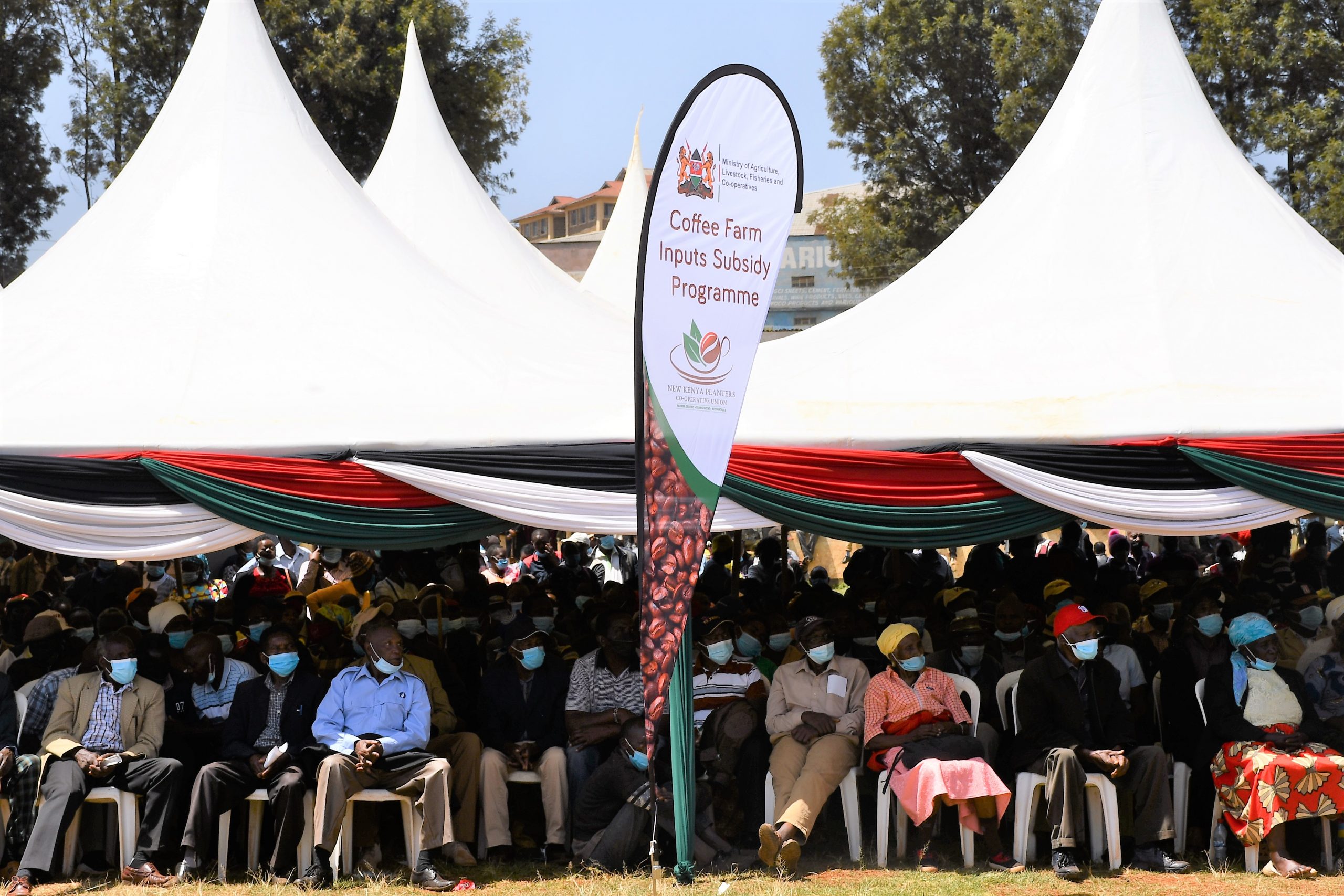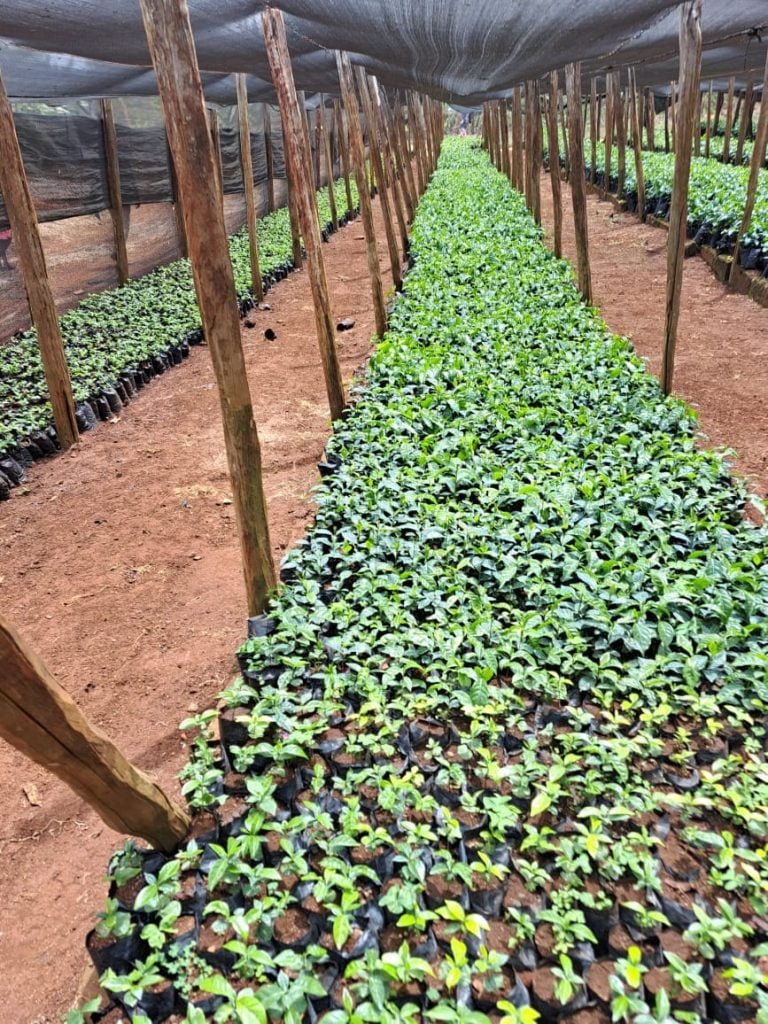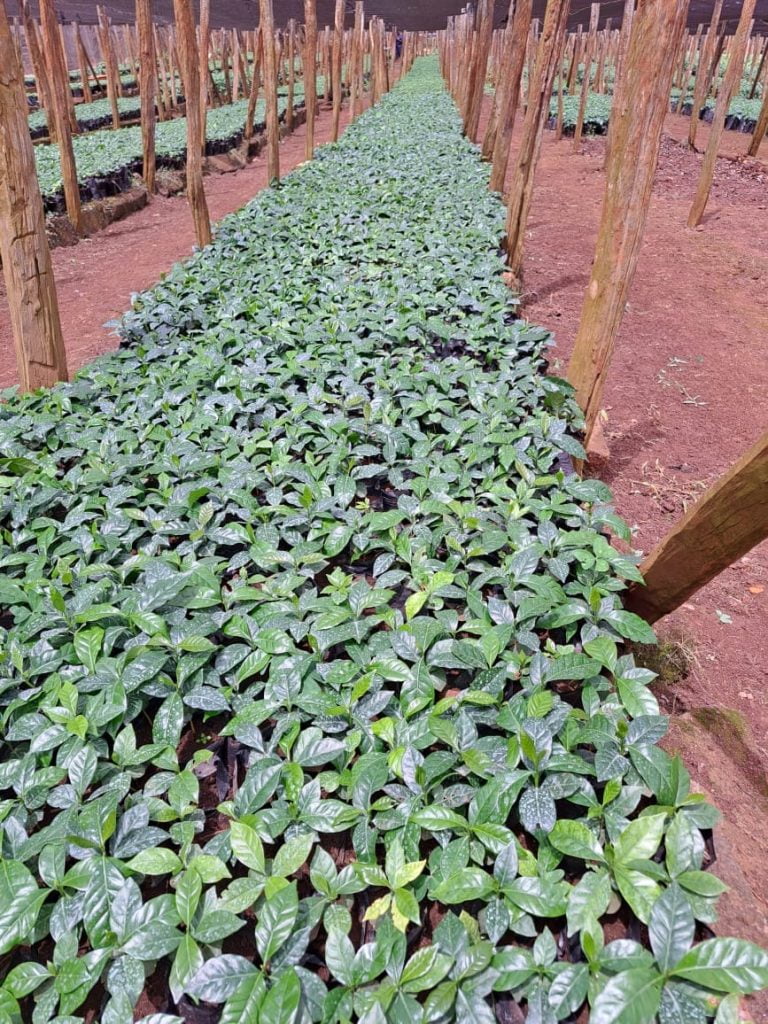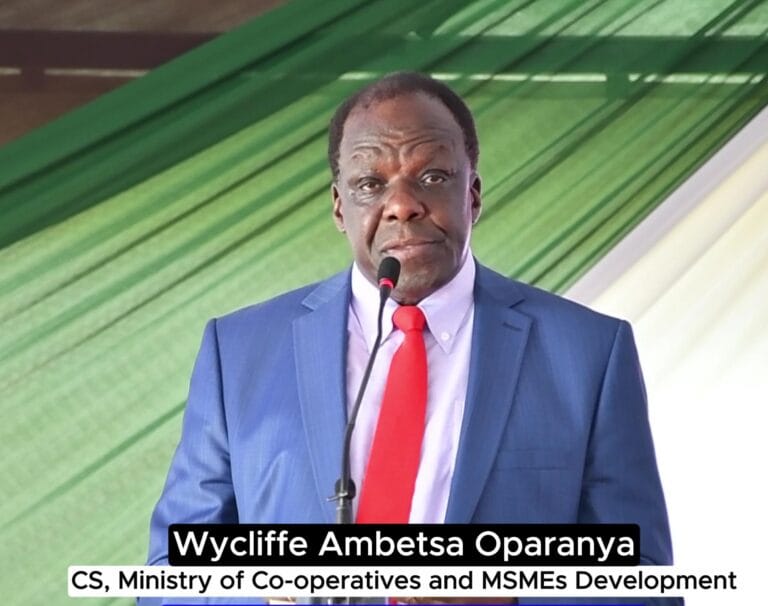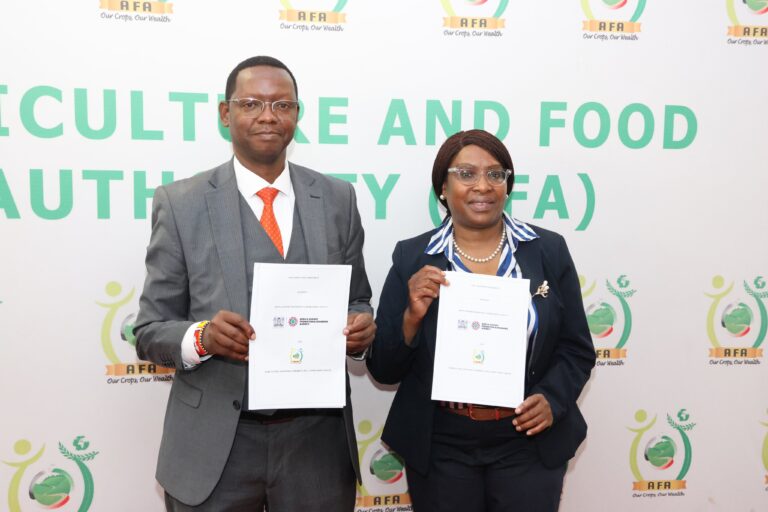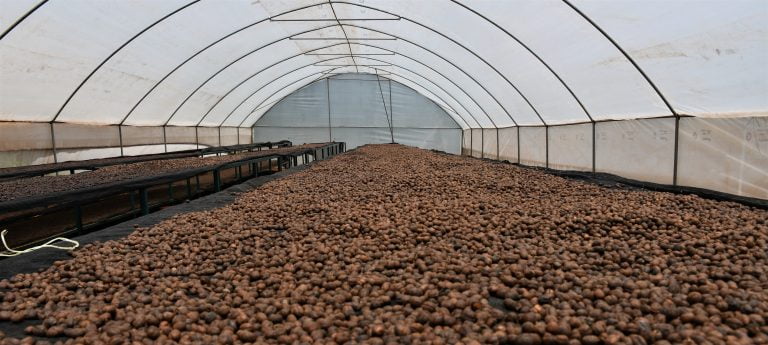The government has launched the National Coffee Farm Inputs Stimulus Package E-Subsidy Programme. The stimulus programme targets 82,650 farmers in the 32 coffee growing counties and is being implemented by the New Kenya Planters Cooperative Union (New KPCU).
This will allow coffee farmers to access a wide range of inputs of their choice at the required time, and at the nearest input supplier through an e-voucher system. Both smallholder coffee farmers in cooperative societies and small estate coffee farmers holding less than 20 acres of land under coffee are eligible to join the programme.
The government has identified input suppliers who will be involved in the programme like Agro-dealers and Cooperative societies that issue inputs. A farmer will be issued with a card that he/she will use to buy fertilizer or pesticides from accredited suppliers. The farmer will swipe the card at the accredited agro-dealer and pay 60% of the input cost and a 40% subsidy will be given by the government.
Addressing coffee farmers from Nyeri at Karatina Stadium, Agriculture CS Peter Munya said this will help farmers to increase their production as well as lower their cost of production. Farmers at the meeting had raised concerns over the high cost of inputs.
Munya also said the ministry was working with Kenya Plant Health Inspectorate Service (KEPHIS) to conduct tests on pesticides to ensure they were up to the required standards before being sold to farmers. He said this was necessitated by complaints from farmers on the quality of some pesticides being sold to them leading to losses.
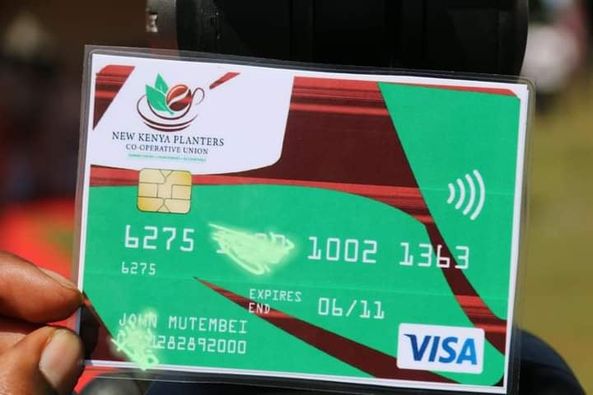
New KPCU Former Chairman Henry Kinyua explains. “This is essentially an e-voucher system. Like all e-voucher systems, there are three components. The administrator, the bank or banks, participating farmers, and the participating supplier agro-dealers. The administrator registers all participants and uses the data to design how beneficiaries will access the inputs and how suppliers will be paid. In this program, New KPCU, a government parastatal is the administrator of the funds and Kshs 1 billion is in their account. The Cooperative Bank is their Banker and hence the main Banker in this program. All participating farmers and agro-dealers are expected to register with New KPCU. The bank will use the data to issue farmers with a card resembling an ATM.
The registered agro-dealers will be given a gadget like a PDQ machine that they will use to validate the cards. The farmers will present the cards to the agro-dealers, pay 60% to activate the 40 % government subsidy. So suppose a farmer in Karatina or Kipkelion wants to buy a fungicide worth Kshs 100. The farmer will go with her/his card to Karatina Agro-shop or Kipkelion cooperative agro shop, assuming they are registered to swipe the card and pay Kshs. 60 and get the fungicide. The Agro-shops, by swiping the cards, will activate the bank to release the Kshs. 40 to their accounts.
Unlike in previous programs where government entities such as NCPB used to procure all inputs in bulk and distribute, this e-voucher program benefits local businesses, and even farmer-owned agro-shops can register and be part of the program”, he says

Despite many interventions to support the coffee industry, there has been a steady decline of production from 129,637 MT CC in 1988 to 36,873 MT CC in 2020. Land under coffee production has equally dropped from 153,030Ha to 119,675Ha during the same period. Weak enforcement of policies and regulations in the industry also contributed to the decline.
The coffee revitalization programme seeks to support coffee production expansion, adoption of improved coffee varieties, increased use of affordable/subsidized farm inputs, and training of farmers on best agricultural practices.
The overall goal of the programme is to promote a sustainable increase in income among the Coffee Growers through improved productivity.
The current national production average is 2kgs per tree as per records with Coffee Directorate. Current production per county is as follows:
| County | Production per tree in Kgs | |
| 1 | Nyeri | 2.5 |
| 2 | Muranga | 2.0 |
| 3 | Kirinyaga | 4.0 |
| 4 | Embu | 2.0 |
| 5 | Tharaka Nithi | 1.5 |
| 6 | Meru | 2.0 |
| 7 | Kiambu | 2.0 |
| 8 | Machakos | 1.5 |


